Garbo
|
|
ALTERNATE TITLE |
TCM Original Documentary: Garbo
|
FILM SCENES |
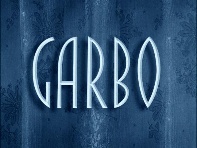  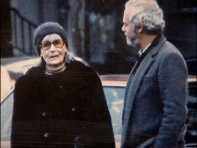 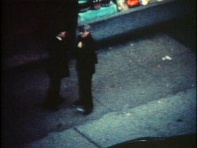
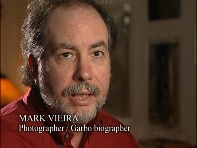 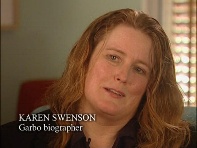 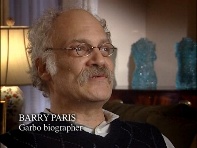 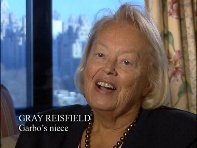
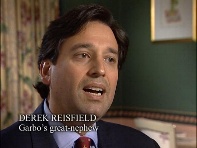   
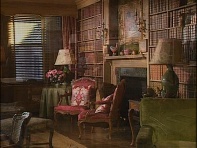 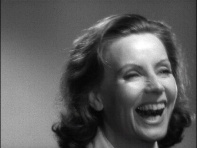  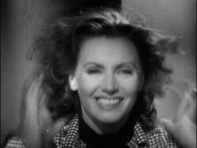
|
COMPANY |
Turner Classic Movies
|
CREDITS |
Written and Directed by Christopher Bird and Kevin Brownlow.
Produced by Photoplay Prods.
Executive producers, George Feltenstein
|
TECHNICAL SPECS |
Runtime: 85 min.
Language: English
|
CAST |
Julie Christie - Narrator
Charles Busch - interviewee
Karen Swenson - interviewee
James Karen - interviewee
Barry Paris - interviewee
Gray Reisfield - interviewee
Derek Reisfield - interviewee
Daniel Selznick - interviewee
Mark Vieira - interviewee
Joseph M. Newman - interviewee
Leatrice Joy Gilbert - interviewee
Cari Beauchamp - interviewee
Gore Vidal - interviewee
Gavin Lambert - interviewee
James Lax - interviewee
Sam Green - interviewee
Scott Reisfield - interviewee
Donald Reisfield - interviewee
|
SYNOPSIS |
85 Minute documentary, narrated by Julie Christie and made for Turner Classic Movie channel to celebrate Garb's 100th Anniversary. From legendary documentarian Kevin Brownlow, "Garbo" offers an intimate look at the life and career of Greta Garbo. Brownlow's unique portrait of the enigmatic actress is drawn through rare footage, new and vintage interviews with biographers and admirers, plus many of the friends, relatives and associates who came closest to penetrating the lonely star's veil of solitude. Her career is illustrated with clips from all her movies, ranging from her early film work in Sweden to such Hollywood triumphs as Anna Christie, Grand Hotel, Camille, Ninotchka and her swan song in 1941's Two-Faced Woman.
|
| RELASED/PREMIERED |
|
England 17 July 2005 (Cambridge Film Festival)
USA 6 September 2005 (TV premiere)
Hong Kong 7 April 2006 (Hong Kong International Film Festival)
|
TRIVIA
|
 Rumor is that a part about the rumor that Garbo was a "spy" in WWI has been cut out. Rumor is that a part about the rumor that Garbo was a "spy" in WWI has been cut out.
|
| DVD COVER ART |
| 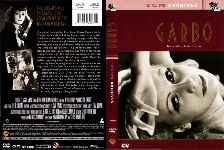
|
| REVIEWS
|
| Taken from IMDb |
TCM has to be congratulated by the magnificent documentary about Greta Garbo it presented recently. As directed by Kevin Brownlow, the film concentrates in presenting a balanced portrait of one of the strongest personalities that graced the screen during the XX Century: Greta Garbo. The narration by Julie Christie, is excellent.
Garbo presents a vivid picture of the mythical figure of Greta Garbo, from her humble origins, to the height of her fame, to the years of oblivion. One thing that comes clear in the film is that contrary to what one might think, Ms. Garbo was not a recluse, on the contrary, she filled her days roaming the streets of her adopted city, New York.
The director is to be commended in that he takes us everywhere, covering the life of the actress. He even takes us where no one else has dared to go, Greta Garbo's inner sanctum, the apartment where she lived on the upper east side of Manhattan. We get glimpses of how the great Garbo lived in her elegant place overlooking the East River , where we see some of the paintings she collected.
For a woman with humble origins, Ms. Garbo deserves a lot of credit for making herself the exquisite figure she became. One has to put oneself in her shoes to realize that she just wanted to live like anyone else did, shunning the limelight and being the down to earth woman she was.
Some of the people interview in the film, like her several family members, the great Clarence Brown, who directed her in some of her best films, George Cukor, and Charles Busch expand on what really comes across that she was an honest human being who had her feet on the ground and had no pretensions or vanity. Her glamorous past was history and all she wanted was to stay away from all the glitter. Congratulations to Kevin Brownlow for his perceptive take on the woman and the myth.
|
| Taken from IMDb |
This is a brilliantly done documentary about one of film's great enigmas, Greta Garbo. For me, watching this was very personal, as I was privileged to research the biography written by Barry Paris (who appears in this documentary). There are interviews with another biographer, Karen Swenson, with Garbo's friends, Sam Green, Gore Vidal, and others, a big fan, the marvelous Charles Busch, family members, John Gilbert's daughter Leatrice Fountain, Daniel Selznick, and footage of an interview with Clarence Brown. The photographs and film clips speak for themselves, for Garbo's tremendous beauty and unique acting ability. She was a totally intuitive actress.
It's a pity that, as independent as she was, that she took some bad advice, and a bigger pity that she never returned to the screen after 1941. A 1949 screen test shows her beauty untarnished, yet the producers were unable to raise money for the film they wanted to do, which devastated her.
In my own research and transcription work, I have to admit I never experienced the Garbo that her friends and family describe. The woman I got to know through transcription of taped telephone conversations and various stories about her seemed neurotic, passive-aggressive, and, frankly, kind of dull. But she was so magical on screen. This is a wonderful documentary, highly recommended.
Chronological documentary of the great Swedish actress Greta Garbo and her struggles to have a private life. Good analysis, great footage from many of her films, well produced and crafted. Narrated by Julie Christi. For anyone who wants to get a solid overview of the life of this extraordinary actress, this is a good place to start. Probably not the definitive biography, but for those of us who are still mesmerized by the persona that we saw on the screen, this will do just nicely. From comments made by those who new this lady in her post-Hollywood life, it would appear that the person that we saw on the screen was nothing like the real person that was molded and sold to the public. The documentary shows Garbo as a highly talented actress that had a true and unique gift that was captured for us to enjoy today. Highly recommended.
|
| Taken from IMDb |
The very beginning of the latest documentary about Garbo that was released on TCM just before her 100th birthday calls viewers' attention to the personality of this great actress. To understand her more profoundly, the director of the documentary, Kevin Brownlow, aims at detailed exploration of Garbo's life, her wonderful but short screen career as well as her later lonely life. Furthermore, the whole movie is supplied with wonderful music by Carl Davies. I have asked my American friends to copy this film from TCM for me and I do not regret. Having seen Steve Cole's GRETA GARBO - A LONE STAR and some of the other minor documentaries, I must admit that GARBO is the best made biographical film about the Swedish beauty so far.
The whole documentary is not sensational but rather aims at presenting Garbo as someone full of contradictions and melancholies. Among a lot of interviews with the people in the film, I particularly liked the one with Mimi Pollak, Garbo's friend from youth, Gray Reisfield, Garbo's niece, Derek and Scott Reisfield, Garbo's great-nephews, and Sam Green, Garbo's companion during later years of her life. They wonderfully managed to get the gist of who Garbo really was - a Swede with Swedish upbringing brought at the age of 20 to a totally different world - Hollywood . She was gentle, humorous, and very independent. Daniel Selznick, the grandson of Louis B. Mayer mentions the fact that Garbo could never adapt to the life and manners promoted within MGM family. Joseph Newman recalls the day on which Garbo first arrived in Hollywood and mentions the difficulties she had to cope with. As a result, we do not get a "glorified picture" of how well everything went but a very realistic look at Garbo's experience abroad. Near the end of the documentary, the viewers are showed the most private thing from Garbo's life, her huge New York apartment with a number of antiques and lovely works of art that she gathered while traveling with friends.
The documentary is also supplied with a wide range of original archives. While watching the film, I could not believe my eyes what a wonderful use TCM producers made of these materials and how perfectly they fit to the documentary. From a number of Garbo's pictures taken in Sweden before 1925, you will see plenty of footages with Irving Thalberg, Mauritz Stiller, George Cukor as well as clips from all of the movies Garbo made in America and earlier in Europe. A lot of people mention the cinematographer, William H. Daniels, who made a perfect use of lighting and beautifully photographed Garbo. But the interest reaches its peak when Clarence Brown appears on screen in the 1969 interview footage and comments on the movies and Garbo's intuitive abilities of acting. He was Garbo's favorite director and cast her in 7 of his films. While he comments, we see footages from his films, particularly FLESH AND THE DEVIL (1926) and A WOMAN OF AFFAIRS (1928) where Garbo played by the side of the greatest love of her life, John Gilbert. Therefore, the archives that you will see in GARBO are hard or even impossible to find elsewhere. I was totally amazed.
Except for aforementioned factors, the documentary is worth seeing thanks to a lot of interesting facts postulated by various people interviewed. Barry Paris, Garbo's biographer, creates a link between Garbo and the audiences of that time; Daniel Selznick concentrates on Garbo - MGM relations; Leatrice Fountain, John Gilbert's daughter, says a lot about Garbo-Gilbert love; actor James Karen refers to the wide and ambiguous presentation of human psyche that Garbo created in her films, which was not that popular among all people. Yet, Mark Vieira, a photographer, recalls Garbo's friend Salka Viertel and her impact on Garbo's films, particularly German version of ANNA Christie and Mamoulian's QUEEN Christina.
If that is not enough, the end of the documentary will absolutely surprise you... It shows the last professional footage of Garbo that was taken in 1949, 8 years after she retired from screen. Although she looks gorgeous in it, the studio did not want her any longer. The footage became known as late as after her 1990 death. What governed the decision to let down the greatest cinema star remains undiscovered.. The TCM production , GARBO, is a magnificent biography that makes a tribute to Greta Garbo, probably one of the very few actresses that a lot of viewers of the 21st century still admire and appreciate... an actress that was born to play. It is, if not a must see, a highly recommended documentary for all open minded people.
|
Taken from IMDb |
Obviously this documentary is essential viewing for anyone with an interest in Garbo. It presents amazing clips from the legendary long-lost 1949 screen-tests for La Duchess de Langeais which of course was never made. These clips show a noticeably mature, radiant, slightly more human 43-year-old Garbo - although to me she almost always has the feeling of an ethereal creature who has time-warped in from some higher plane to mingle for a while with mere mortals.
The reality, as she herself knew better than anyone, was that she was extremely mortal, earth-bound, and was aging fast (heavy smoking and too much sun). The fact that she could no longer maintain the illusion of youth was one of the main reasons why she didn't want to work again, in addition to the fact that she mostly hated making films anyhow, and had become rich and did not have to ever work again.
Note that Two-Faced Woman was not nearly the disaster legend makes it out to be; in spite its being such a mess, of the bad reviews, and the loss of the European market, it grossed quite well and almost broke even financially - a strong indication of the public's continued interest in her. Also note that MGM had dumped pretty much all of their female stars from the silent era by 1942 (i.e Shearer, Crawford et al); Garbo went down in good company, as generational tastes shifted to pin-ups of Rita Hayworth and Betty Grable. Personally, I've always wished that she had ended up making films in Swedish with Ingmar Bergman in the 1950s-60s. She could have done something completely different and quite stunning under his direction, however it appears that no one in the industry - Bergman and Garbo included - was able to conceive of her appearing as a decidedly middle-aged character.
This documentary is also extremely defensive about Garbo's famous reclusiveness and focuses a lot of time and energy on it. However this was only true rather late in her life; for much of her life she was actually somewhat active and social, but in private and very much out of the public eye, as she circulated in an international A-list jet-set.
|
Taken from IMDb |
To fully comprehend the mystique, one must witness the early silent films. The moment she enters the picture as a woman in her early twenties, the viewer is deluged with a face so overwhelmingly beautiful there is no way to detach one's vision from the screen. Her acting is the same way. Each gesture and facial expression is flawless, as if a precursor to the "method."
Surely, observing from whatever star on which she presently resides, she must be amused by the irony. One hundred years after her birth, sixty plus years after her last film and well over a decade beyond her passing, we are still transfixed by her image and captivated by her mystery. Clearly, she was born to the manner. CAMILLE was her signature film, the evidence that she was a star of unequalled magnificence. And she was surrounded by a great cast.
One of the most interesting and mystical facets of Garbo are the rumours that she dismissed her co-star in that movie, Robert Taylor, as being unimportant. In fact, there is considerable evidence to indicate she liked him very much. I cite an article written by Eric L. Ergenbright in a 1937 edition of MOVIE MIRROR magazine: describing Garbo's delight at having recently returned from Sweden where she was treated by a doctor for an ongoing illness, and was now cured. She was apparently outgoing and friendly to everyone on the movie set. Among them was her co-star, Robert Taylor. According to Ergenbright, "Robert Taylor...played an important role in the transformation of Greta Garbo...between scenes of CAMILLE witness Bob Taylor, the ex-farm lad from Nebraska , and Greta Garbo, the ex-milliner from Sweden chatting and laughing like cronies of many years standing. Garbo, it seems, was particularly interested in the Great Middle West because to her way of thinking it is the real America . She asked Bob question after question about his childhood, about life in a small town, about the farms in the Middle West ."
Another story reports that Garbo was extremely moved when Taylor bought her mother flowers for the premiere of CAMILLE at Stockholm , which the three of them attended. When she was making a movie, she tended to live her roles. It was a device she used to make her part "live." But she was not insensitive nor haughty. And she always recognized the importance of her co-stars and the stagehands.
|
| DVD |
| Garbo – The Signatur Collection (DVD Box)

|
| |
SOURCE |
|
| |
IMDB – International Movie Database
|
|
|
|
|